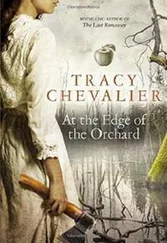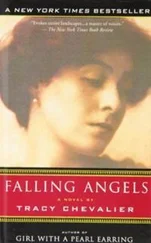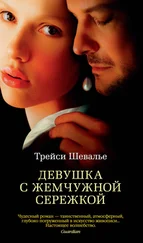That's no answer – look at me, I thought, but didn't say it.
‘You see,’ he said, ‘we protect Jean-Paul a little. We meet a pretty American woman, with much spirit, like a little cat, with her eyes on Jean-Paul but married, and we think -’ he shrugged again – ‘maybe this is not so good for him, but we know he won't see that. Or he sees it but she is a temptation anyway.’
‘But -’ I couldn't argue back. If I countered that every American doesn't run home with her tail between her legs – not that I hadn't considered that option myself in my more alienated moments – Claude would just bring up my being married. I couldn't tell which he was emphasizing more; perhaps that was part of his strategy. I disliked him too much to probe.
What he was unarguably saying was that I wasn't good for Jean-Paul.
With that thought – combined with my lack of sleep and the absurdity of sitting on this bench with this man telling me things I already knew – I finally cracked. I leaned over, elbows on my knees, and cupped my hands around my eyes as if shielding them from strong sunlight. Then I began to cry silently.
Claude sat up straight. ‘I am sorry, Ella. I did not say these things to make you unhappy.’
‘How else did you expect me to respond?’ I replied sharply. He made the same gesture of defeat with his hands as he had the night before.
I wiped my damp hands on my dress and stood. ‘I have to go,’ I muttered, brushing my hair back from my face. I couldn't bring myself to thank him or say goodbye.
I cried all the way home.
The Bible sat like a reproach on my desk. I couldn't stand being in a room by myself, not that I had much choice. What I needed was to talk to a female friend; it was women who usually saw me through moments of crisis. But it was the middle of the night in the States; besides, it was never the same on the phone. Here I had no one I could confide in. The closest I'd come to a kindred spirit was Mathilde, but she had enjoyed flirting with Jean-Paul so much that she might not be too pleased to hear what had happened.
Late in the morning I remembered I had a French lesson in Toulouse in the afternoon. I called Madame Sentier and cancelled, telling her I was ill. When she asked, I said it was a summer fever.
‘Ah, you must get someone to take care of you!’ she cried. Her words made me think of my father, his concern that I'd be stranded out here without help. ‘Call Jacob Tournier if you have any problems,’ he'd said. ‘When there are problems it's good to have family close by.’
Jean-Paul -
I'm going to my family. It seemed the best thing to do. If I stayed here I would drown in my guilt.
I've taken your blue shirt.
Forgive me.
Ella
Rick didn't get a note; I called his secretary and left the briefest of messages.
She was never alone. Someone always remained with her, Etienne or Hannah or Petit Jean. Usually it was Hannah, which Isabelle preferred: Hannah could not or would not speak to her, and was too old and small to hurt her. Etienne's arms were now loose with rage, and Petit Jean she no longer trusted, with his knife and the smile in his eyes.
How has this happened? she thought, linking her hands behind her neck and pressing her elbows to her chest. That I can't even trust my own little son? She stood in the devanthuis and looked out across the dull white fields to the dark mountains and the grey sky.
Hannah hovered in the door behind her. Etienne always knew what Isabelle had been doing, yet she had not been able to catch Hannah speaking to him.
– Mémé, close the door! Petit Jean called from within.
Isabelle looked over her shoulder into the dim, smoky room and shivered. They had covered the windows and were keeping the door shut; the smoke had built up into a thick, choking cloud. Her eyes and throat stung and she had begun to walk around the room ponderously, slowed down as if she were moving through water. Only in the devant-huis could she breathe normally, despite the cold.
Hannah touched Isabelle's arm, jerked her head towards the fire and stood aside to usher her back in.
There was spinning all day during the winter, endless piles of hemp waiting in the barn. As she worked, Isabelle thought of the softness of the blue cloth, pretending she was holding it rather than the coarse fibre that raked at her skin and left a web of tiny cuts on her fingers. She could never spin the hemp as fine as she had wool in the Cévennes.
She knew Jacob must have hidden the cloth somewhere, in the woods or the barn, but she never asked. She never had a chance to; yet even if they had been left alone for a moment she would have let him keep the secret. Otherwise Etienne might have beaten it out of her.
She found it hard to think in the smoke, faced with the endless hemp, the dark, the muffled silence of the room. Etienne often stared at her and did not look away when she stared back. His eyes were harder without eyelashes and she could not meet his gaze without feeling threatened and guilty.
She began to speak less, silent now by the fire at night, no longer telling the children stories or singing or laughing. She felt she was shrinking, that if she kept quiet she might become less visible, and be able to escape the suspicion entrapping her, the nameless threat hanging in the air.
First she dreamed of the shepherd in a field of broom. He was pulling off the yellow flowers and squeezing them between his fingers. Put these in hot water and drink it, he said. Then you will be well. His scar was gone, and when she asked him where it was, he said it had moved to another part of his body.
Next she dreamed that her father was poking through the ashes of a broken chimney, the ruins of a house smoking around him. She called out to him; intent on his search, he did not look up.
Then a woman appeared. Isabelle was never able to look directly at her. She stood in doorways, next to trees and once by a river that looked like the Tarn. Her presence was a comfort, though she never said anything or came near enough for Isabelle to see her clearly.
After Christmas these dreams stopped.
Christmas morning the family dressed in the customary black, their own clothes this time that they had made from their hemp crop. The cloth was hard and coarse but it would last a long time. The children complained that it scratched and itched. Isabelle silently agreed but said nothing.
Outside the Eglise Saint Pierre they saw Gaspard among the crowd gathered in front of the church and went over to greet him.
– Ecoute, Etienne , Gaspard said, I saw a man at the inn who can get you granite for your chimney. Back in France, a day's ride, there is a granite quarry, near Montbéliard. He can bring you a big slab for the hearth in the spring. You tell me the size and I will give a message to the next person going that way.
Etienne nodded.
– You told him I would pay in hemp?
– Bien sûr .
Etienne turned to the women.
– We will build a chimney in the spring, he said softly so that their Swiss neighbours would not hear and take offence.
– God be thanked, Isabelle replied automatically.
He glanced at her, tightened his lips, and turned away as Pascale joined them. She nodded at Hannah, smiled uncertainly at Isabelle. They had seen each other at church several times but had never been able to talk.
The minister, Abraham Rougemont, approached. As he was greeting Hannah, Isabelle took the opportunity to speak softly to Pascale.
– I'm sorry I have not come to see you. It is – difficult now.
– Do they know about – about -
– No. Don't worry.
– Isabelle, I have the -
She stopped, flustered, for Hannah had appeared at Isabelle's side, her mouth set, eyes fixed on Pascale's face.
Читать дальше
Конец ознакомительного отрывка
Купить книгу
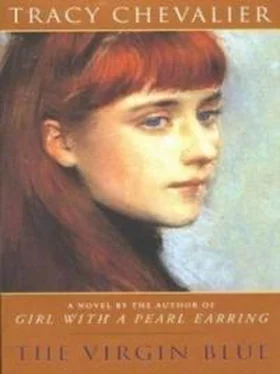
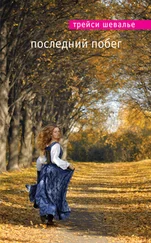
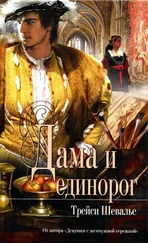
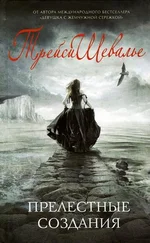
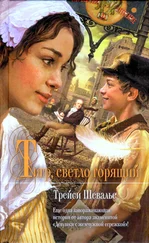
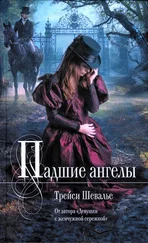
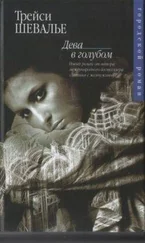
![Трейси Шевалье - Тонкая нить [Литрес]](/books/386177/trejsi-shevale-tonkaya-nit-litres-thumb.webp)
